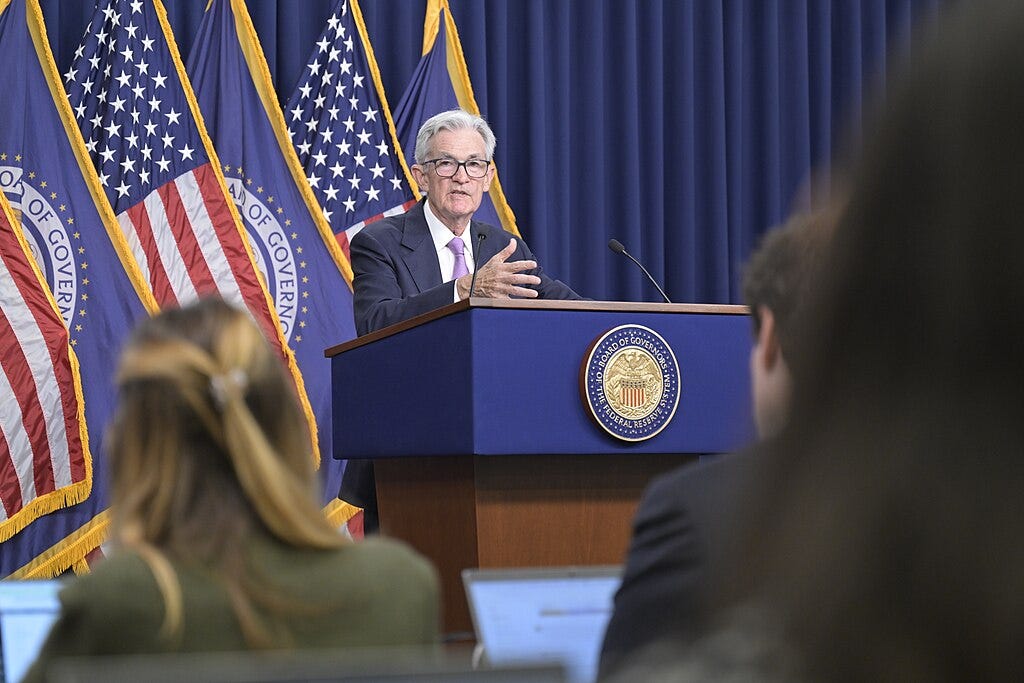Interest Rates Go Up and Down. Many Investors Need to Pay Less Attention to Them.
Plus the NCAA settlement and Warren Buffett's succession planning
Welcome back to Money Games, my monthly take on sports, business, and all things leadership. Thanks for reading and subscribing, and please share with your friends and colleagues.
— Joe
In this issue:
Most investors need to pay less attention to interest rates and more attention to other factors
The NCAA settlement leaves a lot of open questions
Berkshire Hathaway is a master class in succession planning
Why Fluctuating Interest Rates Don’t Matter (For Many Investors)

The Federal Reserve will make its latest interest rate announcement later this afternoon. There’s guaranteed to be a huge amount of attention paid to this. CNBC and Fox Business will have panels dissecting why the Fed decided to raise, lower, or hold interest rates steady. Your average retail investor, watching at home, will no doubt assume that this is the most important event they should be paying attention to.
But that’s the problem.
The truth is, the financial media way over-indexes on how much attention they pay to the Fed. While interest rates matter a great deal to the functioning of the economy and the markets overall, the amount of airtime they get is out of step with what is truly valuable to most investors. At an institutional level, interest rates are key to long-term strategy, but most retail investors probably shouldn’t be changing their personal investing based on interest rate movements.
Now, I get it: Cable news needs content to fill all those hours. Sometimes you have no IPOs or mergers or acquisitions to cover. That’s certainly been the case at times the last few years. The Fed is an easy way to kill time on air. Now that Trump is talking a lot about Powell, there’s even more ways to overanalyze it. But this does a disservice to regular investors who are trying to understand what to do with their money. They need something actionable, and they need to learn something new. Seventeen hours of seven plus people kibitzing about interest rates doesn’t move the needle for them.
For one thing, there’s just not that much to talk about. Jerome Powell has been clear about it: He’s not going to be influenced by politics, and instead he’s said they’re just simply going to look at the data as they’ve always done. And he generally does what he says he’s going to do. Setting Powell’s temperament aside, it’s not terribly hard to analyze ourselves.
Why would he want to ease now, when inflation seems reasonable and the market has come back up from the initial tariff announcements. So long as inflation is hovering around 2–3% and the market seems positive and the economy seems positive, there’s no good case for lowering rates, which means the Fed probably won’t. And easing too soon would cut into his ability to do so later, when that sort of action might be more acutely needed.
Either way, it’s just not that complicated. The rate is either going up, down, or nowhere. So that means investors really need to look beyond interest rates at other factors to decide how they want to invest.
This is where the Consumer Price Index, Producer Price Index, and jobs report really come in.
My point isn’t to decry the business networks or to say that interest rates don’t matter in the grand scheme of things. (Of course they do.) It’s just that retail investors need more than endless discussion of the Fed to make good decisions.
I watch CNBC all day to keep on top of what’s going on in the markets. But, I also understand that what they focus on may not be the most important thing for me to be paying attention to at any given time. A good rule of thumb is that if you want to learn something, read the newspaper. If you want to hear from executives and investors, watch TV. If you want real-time info, then social media may be the best bet, if you know who to follow.
No matter what, you have to be clear on what your convictions are and why you hold them. If you like a company for the long-term, a change in interest rates probably won’t affect that. But if you’re not clear on why you’re investing, then wall-to-wall Fed coverage could cause you to wobble. The long and the short of it is that investors need to understand why they’re investing and then make a choice about what indicators to pay attention to and who to listen to, rather than just following the latest trend on TV or social.
The NCAA Settlement Didn’t Settle Very Much
While the recent NCAA settlement over NIL payments puts to bed a long-running legal saga, there’s a lack of clarity on how much of the new system will work. There’s a lot to work out around whether players are employees, the role of NIL in the new era, the rising tide of private equity in college athletics, and whether smaller schools will even be able to afford to compete. I broke it all down in detail over at Forbes.
Warren Buffett Did It Right
Last month, I wrote about my relationship with Warren Buffett for this newsletter. I also penned a piece for Forbes, where I analyzed the selection of Greg Abel to succeed him at Berkshire Hathaway. A lot of companies get succession planning wrong, but my money is on Abel. It’s no surprise that Warren Buffett went through the process the right way.
BAM Leadership Lesson
Leaders have to support their teams to maximize their potential, which means you need to understand the context you’re operating in and what is actually possible. Jimmy Dean had it right.
“I can’t change the direction of the wind, but I can adjust my sails to always reach my destination.”





